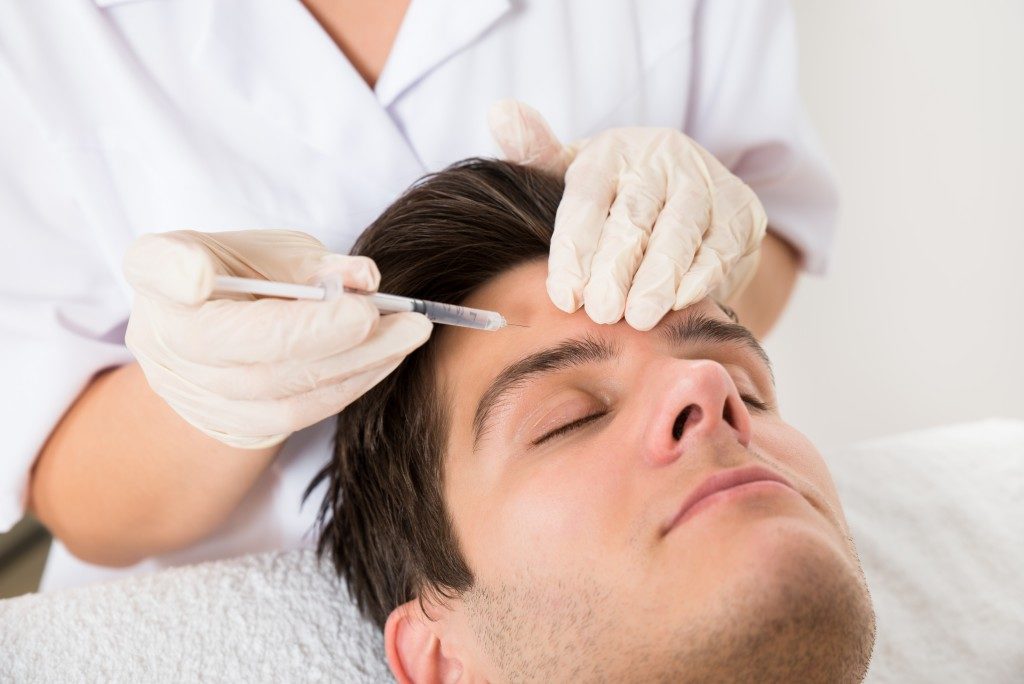Stress impacts people in a lot of different ways. It can disrupt a peaceful night of sleep. It can cause frequent and recurring headaches. More seriously, it raises your risk of developing certain illnesses later in life such as high blood pressure, heart disease, and Type-2 diabetes.
It comes as no surprise that stress can affect your hair, too.
The Case of Gray Hair
It is not a myth that, when you experience high levels of stress, your hair will go gray. Previous studies have found that stress does play a major role in turning hair from colored to ashen.
It is not uncommon for hair to turn gray but, most of the time, it is experienced by older folks. It is possible for young people to have silver strands at a young age, but it is unusual. Those who have gray hair at a young age might be under a lot of stress.
Research published in 2020 tries to explain the link between stress and gray hair. The researchers from Harvard University first measured cortisol, the hormone responsible for the body’s fight-or-flight response. However, they found that the presence of cortisol does not have a direct link to graying hair. Instead, they found that the culprit is a different body part that also plays a major role in the fight-and-flight response. It is called the sympathetic nervous system.
The researchers explained that these nerves are found all over the body, including the inroads to each hair follicle. So, when the chemicals linked to stress response are released, it impacts the hair follicle.
Norepinephrine, which is a stress hormone and a neurotransmitter, prematurely activates the stem cells that produce pigment. As a result, the reserves of color in each strand are used up, making the hair turn gray early.
Unfortunately, once used up, pigments will neither regenerate nor can be reversed. The change is permanent.
More worrying, the researchers said that the loss of pigment happened within just a few days.
You can delay premature gray hairs by eating a diet rich in omega-3 fatty acids, vitamin B-12, and vitamin B-6. Decreasing sun exposure will also prevent silver strands for as long as possible. More importantly, try to keep calm. Do activities that will lower levels of stress such as yoga and meditation, listening to relaxing music, reading a book, or knitting.

Stressing Over Hair Loss
It is also not uncommon for seniors to see an increased number of hair strands drop from their heads without provocation. As you grow older, your hair will start to thin.
Loss of hair is a common source of insecurity among older people. It is mostly irreversible, but certain procedures exist to bring your crowning glory back. There are different ways to do it, and professional laser hair restoration is one strategy that works. It is minimally invasive, does not hurt, and does not require recovery time, unlike other procedures.
Stress, scientists found, can also cause hair loss, even for young people. The specific type of hair loss linked with stress is called telogen effluvium.
People lose dozens to a couple of hundred strands of hair every day. It is not a cause for concern; a person has about 90,000 to 150,000 strands of hair.
Your hair follicles are constantly going through cycles of growth and rest. Most of the time, they are in the growth phase (anagen). The strands that shed were on the rest phase (telogen). When you are under extreme emotional stress due, for example, to a divorce or the death of a loved one, a shift happens. All the hair follicles go into telogen at the same time.
Researchers tested this by exposing mice to sound stress. They found that the experience led to the abrupt end of the anagen phase and the early beginning of the telogen phase.
It would not happen immediately. You might only notice your hair falling off in clumps about three months after the extreme emotional stress. Scientists explain that, when telogen begins prematurely, it still takes several weeks to go through the cycle and for hair to start shedding.
The good news, however, is telogen effluvium is not permanent. There is a high likelihood that the strands you lost will grow back at some point.
Eating a balanced diet will help your hair grow back faster. In addition, lower levels of stress will bring your hair back to its normal cycle.
Stress is common among adults and young people nowadays. While it is normal to experience stress every once in a while, especially during tough times, feeling stress frequently is bad for your health. It will also negatively affect your appearance, starting with your hair.









